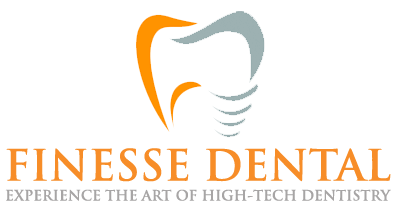Gum Disease
Most patients are aware of the effect of dental decay on teeth but do not realize the importance of maintaining gum health until they experience symptoms of gum disease such as bleeding or sore gums. At this stage, the gum disease is referred to as gingivitis and is characterized by swollen, red and bleeding gums. Gingivitis is the result of plaque and calculus (hardened plaque) sitting at the gumline, causing irritation and inflammation. When food matter is not cleaned off the teeth and gums properly, it mixes with saliva to create plaque and calculus, which are teeming with bacteria. It is this bacterial load which leads to the inflammatory gum condition of gingivitis.
However, if the plaque and calculus are not removed, more and more sinister types of bacteria adhere to the existing calculus build up, causing the body’s immune system to go into overdrive. At this stage, the gum disease is referred to as periodontitis. In an attempt to expel the bacterial colonies from the mouth, the body actually initiates break down of jaw bone and support structures of the teeth. At this stage, you will see noticeable gum recession or an elongated appearance of your teeth. Tooth mobility can also occur, and if the gum disease is not managed, eventual tooth loss can occur due to lack of remaining tooth support.
So how do you treat periodontal disease (gum disease) such as gingivitis and periodontitis?
The most important step occurs from your own home. Twice daily toothbrushing and nightly flossing will ensure that soft plaque is removed from the teeth and gums on a regular basis. Next, ensure you attend 6 monthly dental visits so that a dental professional can remove any hardened calculus using specific instruments. These two methods combined will allow the bacterial trigger to be removed from the oral environment, allowing gums to heal. While lost bone cannot be grown back, further bone and gum loss can be prevented. This can make the difference between keeping or losing a tooth. At your next appointment, ask your dentist, hygienist or oral health therapist about the condition of your gums. In the meantime, do not neglect your oral hygiene routine at home.
For more information on Periodontal/Gum Disease Treatment, please call (02) 8806 0790 or contact us online.

